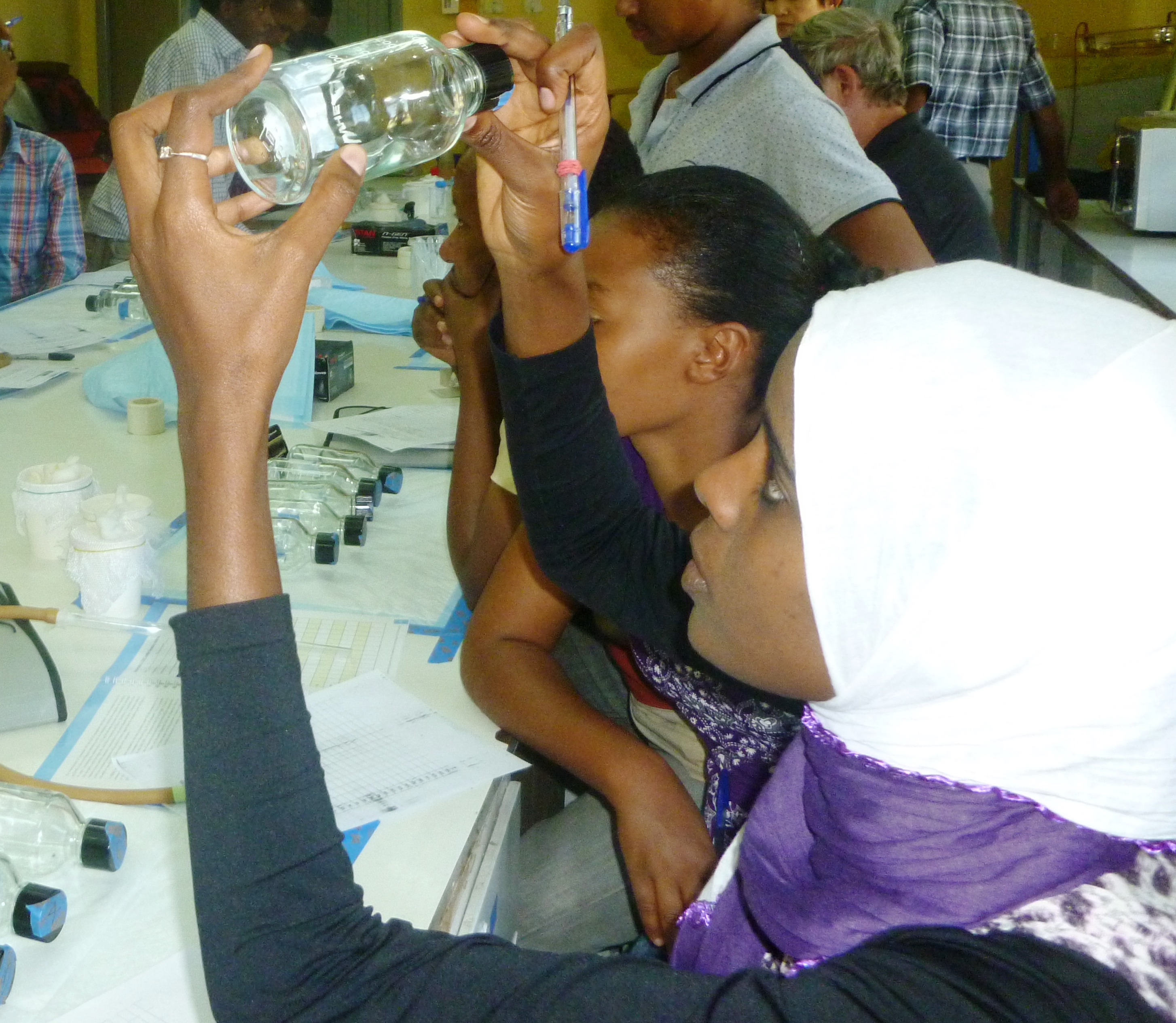Malaria is a preventable and treatable disease transmitted by the female Anopheles mosquito. Alone, this mosquito poses a deadly threat to nearly half of the world’s population, but women and children in sub-Saharan Africa are most at risk. Carrying 80% of the global malaria burden, the region is most vulnerable to malaria-related illness and death. In addition to loss of life, malaria places an economic burden on African nations, costing an estimated US$12 billion a year.
Despite the devastation the Anopheles mosquito has caused, investments made by host-country governments and international donors have helped protect millions of people from malaria. With support from The President’s Malaria Initiative (PMI), The PMI VectorLink Project continues the work of the PMI Africa Indoor Residual Spraying Project, protecting 20 million people a year from the deadly disease. Focusing our efforts in countries with the highest burden has allowed us to have the greatest impact. This World Mosquito Day, August 20, we reflect on the progress made in the fight against malaria and the strength of communities that are free of its burden.
- Entomological monitoring is crucial for helping us make evidence-based decisions on how best to kill malaria vector mosquitoes. Studying the Anopheles mosquito feeding, breeding, and biting habits helps us target and kill them to protect communities from disease.
- Malaria-free communities are happy communities!
- PMI VectorLink trains and supports district officials in supervising community spray campaigns. Our supervision checklists cover all the key aspects of spray operations, such as compliance to safety procedures, spray personnel conduct in the community, and insecticide application techniques.
- Our indoor residual spray operators often come from the communities in which they serve. Mobilizing the community and building relationships based on trust gets our beneficiaries involved and excited to do their part in preventing the spread of malaria.
- The PMI VectorLink Project employs a strong monitoring and evaluation (M&E) system to ensure high quality data, guiding and strengthening the operations of the PMI’s indoor residual spray campaigns. PMI VectorLink collects data from millions of people across 22 countries in Africa that provides evidence of our impact.
- Support and participation from communities is vital for protecting the health of individuals and achieving indoor residual spray objectives. Establishing a community-wide understanding of IRS facilitates successful spray campaigns.
- Fighting mosquitoes is hard yet rewarding work. Knowing that we are protecting 20 million people a year from malaria keeps us going!
- With 400-900 spray operators in the field during a single campaign, standard procedures are essential to ensuring success. Our job-aids help spray operators to achieve the highest level of standardization in operational performance.
- Our method of direct supervision ensures top quality results during our indoor residual spray campaigns. A team of dedicated spray operators is closely supervised by their Team Lead to help ensure the best coverage for each household.
- Malaria disproportionately affects children under 5 years of age, who account for 78% of all deaths. Contracting a parasite from the Anopheles mosquito during pregnancy, particularly among new mothers, increases the risk of maternal mortality, and neonatal mortality. Protecting young children and mothers-to-be from malaria is one of PMI VectorLink’s top priorities.
- Keeping kids malaria-free means keeping them happy, healthy and in class! Malaria disproportionately affects children from poor communities as they rarely have access to quality care and preventative treatment. Malaria-related illnesses further prevent these children from continuing their education and growing to become strong and successful members of their community.
- Indoor residual spraying helps ensure that everyone in the household is protected from the threat of malaria-ridden mosquitoes.
- Before the start of a spray campaign, community mobilizers coordinate with community and religious leaders to provide information about the importance of indoor residual spray and how it helps protect families from deadly mosquitoes. This method allows effective and positive information about vector control to reach communities and dispel myths to increase the uptake in the service – which is always provided at no cost to the beneficiary.














